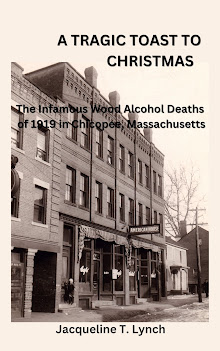Photo by J. T. Lynch
We mark Labor Day next Monday with a look at this evocative statue sculpted by Antoinette Schultze and dedicated September 9, 1988.
The Amoskeag Manufacturing Company created Manchester, as much as did Samuel Blodgett, who in 1807 constructed a canals and locks along the Merrimack River that would open this area by Amoskeag Falls to industrial development. His idea was of a kind of textile manufacturing center similar to the city of Manchester in Great Britain. In referring to this project as “The Manchester of America”, the nickname stuck, and Manchester, along with the Amoskeag Manufacturing Company, which produced cotton and woolen textiles, became a planned industrial city in much the same way as Lowell, Massachusetts.
The first jeans put out by Mr. Levi Strauss were made from cloth manufacturered here.
Photo by J.T. Lynch
With its orderly grid of streets and any amenity of civilized village life the old paternalistic system could bestow, it was a world unto itself. The world came crashing down on Christmas Eve, 1935, when the Amoskeag closed it doors. There were many contributing factors, the Great Depression obviously being among them, but aging technology in a fast-changing world had a lot to do with it. River-powered turbines were not needed in the newer plants of the South when the oil which powered those mills seemed so plentiful.
There is a very old cycle to creating industry and watching it become obsolete, a pattern we have yet to fully understand, let alone break.
Visit the Amoskeag complex of 19th century factory buildings today, and you find a number of small businesses including software companies, stores, and the very interesting Millyard Museum, which holds the story of Amoskeag, among them.
Millie the Mill Girl stands here stoically reflecting on the past. The plaque mounted on the side of the building above her contains a moving tribute to our mill girl:
She stands here, for thousands
Of 19th century working women:
Industrial revolutionaries who broke
With the past to earn their living
Making history and creating the future.
For more on the 19th century mill girls, have a look at this previous post on Millie’s sisters in Lowell and in Chicopee.
For more on the Millyard Museum, have a look at this website.
Photo by J.T. Lynch













2 comments:
That sounds like a really interesting museum. It does seem like so much of the history of New England is centered on the obsolescence of technology in the manufacturing towns, whether it was the changes in transportation that affected paper mill towns like Bellows falls, VT or changes in types of power used to run the mills themselves. As usual, an informative post, & definitely appropriate with Labor Day coming up.
Hi, John, thanks for stopping by. It is an interesting museum, and the whole factory complex has experienced a re-birth of sorts in a variety of new businesses and uses. I agree the manufacturing rise and fall is a huge part of New England history, and one I find fascinating.
Post a Comment